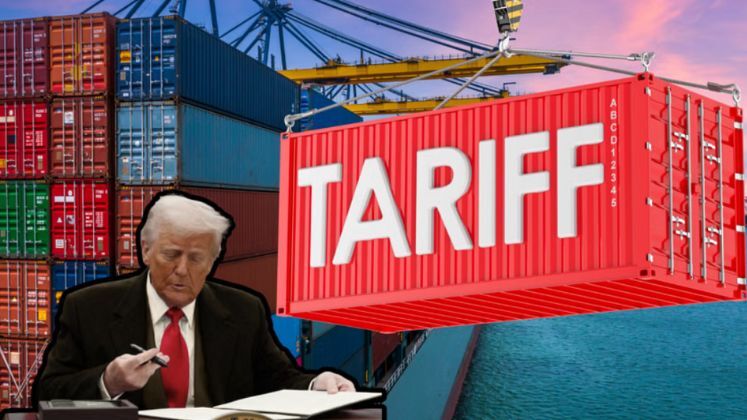
The United States’ new 20% reciprocal tariff on Bangladeshi exports to the US will come into force tonight, potentially reshaping the trade landscape for Bangladesh’s vital apparel sector. The tariff, which raises the total duty on Bangladeshi garments to 35.5%, applies to all shipments dispatched from Chattogram port after 12:01 am on 8th August. Shipments sent before this cutoff remain exempt from the new duties.
Despite the tariff hike, industry leaders highlight several factors that could mitigate immediate adverse effects. Notably, shipments already en route to US ports, those dispatched before the midnight deadline, will not be affected by the new tariff, offering some relief to exporters. Additionally, the typical shipping cycle of 28 to 35 days means many consignments leaving Chattogram today will arrive in the US before the higher duties are imposed.
Bangladesh’s apparel exports to the US remain robust, reaching US $ 7.54 billion in FY 2024-25, marking a 14% year-on-year growth. The US continues to be the country’s largest single market for ready-made garments (RMG). Industry experts emphasise Bangladesh’s competitive edge, especially in knitwear, where over 80% of the backward linkage provides a significant advantage. The country’s reputation for timely payments and ethical business practices has also fostered strong goodwill abroad.
While some companies report last-minute negotiations with US buyers—who are seeking to share the additional tariff burden, most exporters are adopting a cautious approach. As Syed Tanvir of Pacific Jeans noted, there has been no rush to expedite shipments before the tariff deadline, with port congestion remaining normal. Many exporters have already adjusted their planning to account for the new duties, minimizing immediate disruptions.
Industry representatives acknowledge the challenge the tariff presents but remain optimistic about Bangladesh’s strengths. “Our competitiveness in knitwear and our established reputation give us a solid footing,” said Finance Adviser Salehuddin Ahmed. He also pointed out that no formal reciprocal tariff agreement has been finalised yet.
Exporters like AK Azad of Ha-Meem Group expressed concerns over thin profit margins, emphasising that absorbing additional costs is unfeasible. Nonetheless, the industry is focused on adapting to the new trade environment while leveraging Bangladesh’s core strengths, such as a skilled workforce, reliable supply chains, and ethical business practices, that continue to make the country a preferred sourcing destination for US buyers.






